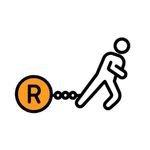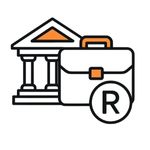
Many South Africans find it difficult to save due to a combination of economic pressure, social obligations, and limited access to financial tools. Low income levels, rising living costs, and widespread debt have made it harder for households to set money aside. While saving is often encouraged, for many people it feels out of reach. Without proper guidance and support, saving can appear unrealistic, especially when basic needs already consume most of one’s income.
Key Takeaways
- Low Savings Undermine Economic Growth: South Africa’s low household and business savings reduce investment capacity, slow economic growth, and limit job creation, which in turn makes it harder for individuals to save.
- Debt And Cost Of Living Are Major Obstacles: High personal debt, the aftermath of COVID-19, and rising living costs make it difficult for many South Africans to set money aside, as much of their income is spent on repayments and basic needs.
- Simple Habits Can Improve Financial Health: Practical steps such as budgeting, tracking spending, reducing debt, and saving small amounts consistently can help build financial stability and improve long-term savings behaviour.
About Arcadia Finance
Finding the right loan is simple with Arcadia Finance. Choose from 19 vetted lenders, all fully compliant with NCR regulations. There are no application fees, and the process is fast, safe, and tailored to your financial goals.
Why Should South Africans Save More?
Savings play a vital role in supporting South Africa’s economic progress. For a developing country such as South Africa, higher levels of savings help provide the capital needed for productive investment. This investment contributes to stronger economic growth, increased income levels, and over time, enables households and businesses to save even more. When growth picks up steadily, it often encourages foreign investors to direct funds into the country, helping to strengthen the cycle of saving and expansion.
However, this process can reverse when savings remain too low. Insufficient domestic savings can limit investment opportunities, slowing down economic development and reducing job creation. Lower employment then results in reduced household income, which discourages saving even further. Although foreign capital may occasionally provide short-term support, it tends to fluctuate significantly and cannot be relied on consistently.
At present, South Africa is experiencing the negative side of this cycle. Prolonged economic underperformance has weakened the ability of individuals to set aside disposable income. At the same time, businesses have struggled to maintain profitability and grow their reserves. This situation has left the economy with minimal savings to fund the type of investment needed to stimulate real economic momentum.

Hurdles To Saving In South Africa

High Levels Of Indebtedness
A significant portion of South Africans are burdened with various forms of debt, such as personal loans, credit card balances, and retail credit accounts. Due to these financial obligations, a large share of their monthly income is directed towards repayments, leaving little room for building savings.

Post-COVID-19 Effects
The economic consequences of the pandemic continue to affect South Africans. Many individuals experienced job losses or reduced income, particularly within the informal sector and small enterprises. Trade restrictions and lockdown measures forced numerous businesses to shut down permanently, leading to widespread job cuts and financial instability.

The Cost Of Living
Over the past two years, inflation in South Africa has increased sharply, driving up the prices of essential goods and services. Items such as groceries and transport have become more expensive, making it harder for households to save. According to FinScope Consumers South Africa 2023, nearly half of adults in the country report borrowing money just to cover food expenses.

Low Levels Of Financial Literacy
A lack of financial understanding remains a major barrier to saving. Without sufficient knowledge about budgeting, interest rates, or savings strategies, many individuals find it difficult to make informed decisions. As a result, saving is often neglected or viewed as unaffordable.

Income Inequality
South Africa continues to experience some of the widest income disparities globally. Those earning lower wages or living in poverty often have no surplus income once their basic needs are met. This makes it extremely difficult for such individuals to put money aside for the future, worsening the gap in financial stability between income groups.

Informal Savings Mechanisms
In various communities, informal systems like stokvels play an important role in encouraging savings. These group-based schemes involve members making regular contributions, which are then distributed on a rotating basis. While they support short-term financial discipline, stokvels may lack the protections and interest-earning potential offered by formal banking products. There is growing interest in adapting these mechanisms to support long-term investment goals.

Access To Financial Services
Despite some progress in improving financial access, many South Africans, especially in rural or underdeveloped regions, still face barriers to formal banking. Limited access to banks, savings accounts, and mobile financial tools restricts their ability to save effectively. Expanding financial inclusion remains a key step in supporting a broader savings culture.

Government Initiatives
The South African government has introduced programmes such as tax-free savings accounts and financial education campaigns aimed at encouraging saving. While these efforts are commendable, their long-term success in changing saving habits among the population has yet to be fully assessed.

How To Take Control Of Your Finances
Cut Down On Everyday Spending
Small, frequent purchases often go unnoticed until your budget feels tight and you’re unsure where your money has gone. A practical step to regain control is to keep a daily record of all your expenses. This method will help you identify areas where you’re spending more than necessary.
You may be shocked at how much cash is wasted on non-essential items that could easily be reduced or removed. A common example is takeaway coffee. Many working individuals rely on a caffeine boost to start the day, but few realise the actual cost over time.
If you buy two takeaway coffees daily, five days a week, you’ll end up purchasing around 40 cups per month. At R13 per cup, that totals R520 a month. By cutting down to one cup or making your own at home, you could significantly reduce this expense and have money left for other priorities.
Shop With Purpose
Planning your shopping habits like how frequently you shop, where you shop, and what you buy, can lead to noticeable monthly savings. There’s often debate around whether shopping weekly or monthly is better, but each method can be effective if properly organised.
While perishable goods like fruit and vegetables should be bought weekly to prevent waste, most items can be purchased monthly in bulk. Doing your main shopping at a supermarket allows you to cut back on time spent and fuel used travelling between different shops.
Try not to fall into the routine of popping into a petrol station shop out of convenience. Although buying a loaf of bread or a bottle of milk now and then won’t destroy your budget, these convenience stores are usually more expensive. Staying organised with your grocery plan can help avoid these unnecessary expenses.
Work On Reducing Debt
Getting rid of debt isn’t easy, but it can be done. The first and most vital step is to stop creating new debt. Every loan or credit facility you open adds to your interest burden and delays your ability to start saving.
A DebtSafe report from 2015 showed that over half of South Africans were unable to meet their debt obligations. Many individuals are using most of their income to repay loans, struggling to cover basic living costs, and falling into further debt as a result.
According to government data, household debt, which includes home loans, credit card balances and overdrafts, sits at around 80% of household income. With so much income tied up in repayments, saving becomes a distant goal.
To reduce your debt, you need a realistic plan and strong commitment. Focus on repaying one account at a time, stick to monthly payments, and avoid taking on new financial obligations.
The money saved from reduced spending and smarter shopping can be redirected to pay down your debts more quickly. This not only reduces the total interest paid but also helps you reach financial stability sooner.
Turn Saving Into A Routine
The most reliable way to save is simply to make saving part of your routine. You don’t need a large sum to begin. Even a small, regular contribution to a savings account can set you on the right path.
Once saving becomes part of your mindset, the amount is less important than the consistency. People often fail to save because they don’t include it in their monthly plans. Treat saving like any other expense, and it will become second nature.
Consider placing your savings in a separate account so it’s not easily accessible. Keeping it separate makes it less tempting to spend. As saving becomes part of your habits, it will become easier to increase how much you put away over time.
If you find it difficult to start this habit on your own, it may be worthwhile to speak with a financial adviser for practical guidance.

Common Financial Mistakes To Avoid
| Financial Mistake | Details |
|---|---|
| Not Having A Financial Plan | Creating a clear budget is one of the most important steps in managing your money. Knowing how much you earn and where it goes helps you avoid spending beyond your means. A proper budget gives you visibility into overspending and shows where adjustments are needed. To prevent poor financial decisions, make a habit of drafting and reviewing your budget regularly so you can remain in control of your money. |
| Excessive Spending | Failing to budget often results in spending more than you realise. Without a system in place to track your costs, you risk running out of money before the end of the month. With the rising cost of living in South Africa, including increases in food and basic goods, it’s easy to fall behind financially if your spending goes unchecked. Monitoring your expenses helps prevent overspending and gives you a clearer picture of your financial situation. |
| Living On Borrowed Money | Relying on credit cards, loans or overdrafts to cover basic expenses is a warning sign of poor money habits. A budget only works if you actually use it and update it. Keep a close eye on how much you borrow and what you spend it on. Regularly reviewing your budget helps you spot unnecessary expenses and find opportunities to adjust your spending, so that you rely less on credit and start saving more. |
| Not Having An Emergency Fund | Having no emergency fund can leave you vulnerable when unexpected expenses arise. A savings buffer of three to six months’ income can prevent the need to rely on debt during a crisis. If you’ve already used credit for emergencies, focus on paying off that debt by paying more than the minimum to reduce interest over time. Then, begin setting aside money steadily for an emergency fund. Link your savings to a specific goal to make it easier to stay committed. |
| Not Being Honest About Your Financial Situation | Avoiding the truth about your finances makes it harder to plan effectively. Start by evaluating your current financial habits and acknowledge where change is needed. Be clear about how much you earn, what you owe, and what you spend. Your financial mindset plays a big role in whether or not you succeed in managing your money. The better your understanding of your habits, the more effectively you can make your finances work for you. |
| Not Having A Savings Account | Keeping your savings in your main account increases the risk of spending it. It is advisable to open a separate savings account where you can deposit money meant for future use. A tax-free savings account may be a suitable option, as it allows your money to grow without being taxed on interest or capital gains. Separating your savings from your daily spending helps you stay disciplined. |
Conclusion
Saving remains a challenge for many South Africans due to high levels of debt, limited income, and rising living costs. However, small but consistent changes in financial habits, such as tracking daily expenses, creating a practical budget, reducing unnecessary spending, and prioritising debt repayment, can make a significant difference. Improving access to financial tools and encouraging better financial planning through education and government support are also necessary to promote a healthier savings culture. With discipline and the right approach, even modest savings can help individuals build financial resilience and prepare for future needs.
Frequently Asked Questions
Many South Africans face high debt repayments, rising living expenses, and limited income, leaving little room to set money aside. Financial pressure is often worsened by job losses and low financial literacy.
Low savings reduce the amount of capital available for local investment, slowing economic growth and job creation. This, in turn, further limits household income and discourages saving.
Start by creating a budget that includes debt repayments and saving, even if it’s a small amount. Focus on paying off one debt at a time while gradually increasing your savings as your debt burden decreases.
Stokvels can help build discipline around saving and offer community support. However, they may lack the interest and security features offered by formal banking products, so it’s worth using them alongside a proper savings account.
A tax-free savings account allows your money to grow without being taxed on interest or capital gains. This makes it a useful option for long-term savings goals while reducing your overall tax burden.
Fast, uncomplicated, and trustworthy loan comparisons
At Arcadia Finance, you can compare loan offers from multiple lenders with no obligation and free of charge. Get a clear overview of your options and choose the best deal for you.
Fill out our form today to easily compare interest rates from 19 banks and find the right loan for you.

